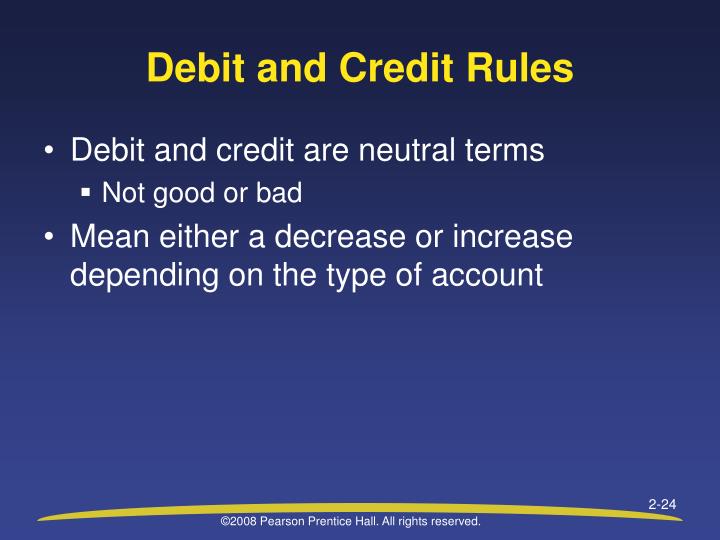
They are Assets, Liabilities, Income or Revenue, Expense, and Equity or Capital.Īll financial transactions are classified according to the nature of the transaction and grouped into the above five groups of accounts. No card issuer shall report any credit information relating to the new credit card account to the credit information companies prior to the activation of the card.The modern accounting equation principle consists of five accounting elements. Card-issuers may consider introducing an insurance cover for customers for liabilities arising out of lost cards, card fraud.ĩ. This will be provided to the customer at the time of onboarding.Ĩ. The most important Terms and Conditions should be highlighted and sent separately to the customers. In the event of a credit card application being rejected, the card issuer will have to explain in writing why the application was rejected.ħ. The card-issuer shall provide a one-page key-fact statement along with the credit card application, which will include key card aspects such as interest rate, charges, and other information.

If no consent to activate the card is received, the Card Issuer shall close the Credit Card Account at no cost within seven working days from the date of receipt of confirmation from the customer.Ħ.
Debit credit rules password#
If the card is not activated by the customer for more than 30 days from the date of issue, the Card-Issuer shall obtain One Time Password (OTP) based consent from the Cardholder to activate the credit card. It is emphasised that any loss arising out of misuse of such cards without consent shall be solely the responsibility of the card issuer and the person in whose name the card is issued shall not be liable for the same.ĥ. There have been cases where a card issued in the name of a person did not reach them and was misused. In addition, card-issuers can use other digital modes along with multi-factor authentication for customer consent.Ĥ. The card issued or the other products/services offered with the Card requires the written consent of the customer. The Ombudsman will decide the amount of fine as per the provisions of the scheme.ģ. The person in whose name the card is issued can also approach the Ombudsman of Reserve Bank of India.

A fine of twice the value of the fee refunded will also be payable.Ģ. If the card is issued without consent or the existing card is upgraded and activated without the recipient's approval and is billed for it, the card issuer will not only have to refund the money, but also to the recipient without any delay. According to the new rules, issuance or upgradation of cards without consent has been banned. Here we tell you 10 important points regarding the new credit card rule change.ġ. The special thing about the new credit card rules is that now the banks issuing credit cards and debit cards will not be able to arbitrarily with the customers. Read | RBI announces new rules for credit, debit cards, check here The provisions relating to credit cards under the RBI (Credit Card and Debit Card - Issuance and Conduct) Directions, 2022 shall apply to every Scheduled Bank (excluding Payments Banks, State Co-operative Banks and District Central Cooperative Banks) and all Non-Banking Financial Companies (NBFCs) operating in India.


In some good news for customers, the Reserve Bank of India (RBI) has made some changes in rules related to credit cards and debit cards. These new rules will come into effect from July 1, 2022. The purpose of these rule changes, including closure of credit cards, billing is to make the use of the card more useful.


 0 kommentar(er)
0 kommentar(er)
